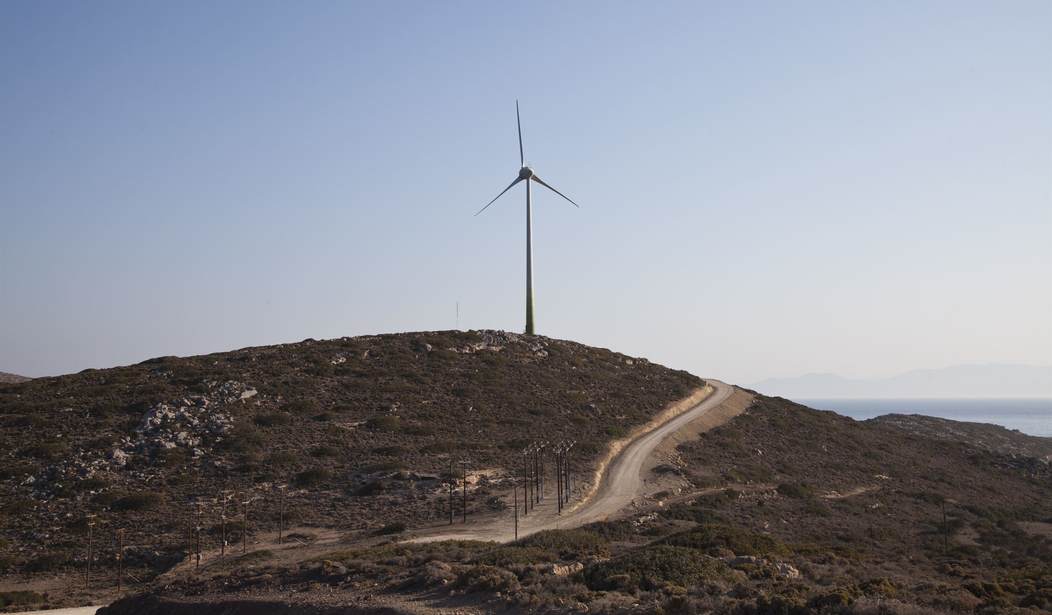“Save the whales” used to be the environmentalist mantra — until the whales got in the way of the “green energy” revolution. (“Green energy,” in my view, is not about environmentalism but about bringing about a post-industrial, depopulated world by cutting off the energy supply, but we’ll leave that aside for the time being.)
As of August 12, 60 whales have died along the East Coast since 2022, the most recent of which washed up on Takanassee Beach in New Jersey next to an offshore surveying project to assess the feasibility of a wind farm in the area.
Takanassee Beach, Long Branch, NJ, 8/12/23, Humpback.
NJ/NY #whaledeath No. 23 since Dec. Heavy #offshorewind surveying close by. Like the rest.
Necropsy 8/13 AM on beach. @mtkblb @Scoop443 @OglesbyAPP @ACPressMartucci @nypost @Jerseynews_Bill @SaveJersey @njdotcom… pic.twitter.com/ISDv4dRth2
— Mike Dean (@mikerdean22) August 13, 2023
For anyone who appreciates large marine mammals (which is a lot of people, including the most ardent environmentalist faithful), this kind of optics is obviously not good for propaganda purposes. Environmental groups in favor of wind farming have tried to manage the problem, arguing that “experts” say the deaths are “probably not” connected to wind projects.
Is it a coincidence that whale deaths have skyrocketed just as the wind energy revolution picks up steam? It’s possible, but Michael Shellenberger of Twitter Files fame doesn’t think so, and neither do his fellow producers of a new documentary, “Thrown To The Wind.”
The two ways that Shellenberger and Co. suspect that wind farms may be triggering a spike in whale deaths are increased boat traffic in certain areas and sonar mapping of the ocean floor, which frightens the whales, thereby separating mothers and their calves, causing fatigue, and directing them to areas of greater boat traffic and therefore greater danger. He discusses these causal mechanisms and his documentary in greater detail at his Substack.
Of all the alternative energy sources, wind offers perhaps the lowest return on investment and actually may harm the capacity to capture and use other renewable energy sources with more potential like solar power. Geologists refer to the sum total of energy available on Earth that can be turned into usable energy as “free energy”, and some believe that it is reduced by large-scale wind harnessing projects.
Via New Scientist (emphasis added):
The idea that we can draw endless supplies of clean energy from the wind and waves just doesn’t add up…
Efforts to satisfy a large proportion of our energy needs from the wind and waves will sap a significant proportion of the usable energy available from the sun…
We should be looking at how much useful energy – called “free” energy in the parlance of thermodynamics – is available from the global system, and our impact on that.
Of the 47 TW of energy that we use, about 17 TW comes from burning fossil fuels. So to replace this, we would need to build enough sustainable energy installations to generate at least 17 TW. And because no technology can ever be perfectly efficient, some of the free energy harnessed by wind and wave generators will be lost as heat. So by setting up wind and wave farms, we convert part of the sun’s useful energy into unusable heat.
“Large-scale exploitation of wind energy will inevitably leave an imprint in the atmosphere,” says Kleidon. “Because we use so much free energy, and more every year, we’ll deplete the reservoir of energy.” He says this would probably show up first in wind farms themselves, where the gains expected from massive facilities just won’t pan out as the energy of the Earth system is depleted.
Using a model of global circulation, Kleidon found that the amount of energy which we can expect to harness from the wind is reduced by a factor of 100 if you take into account the depletion of free energy by wind farms. It remains theoretically possible to extract up to 70 TW globally, but doing so would have serious consequences.
In other words, trying to get sufficient usable energy out of wind farms is not only likely a fool’s errand, but it’s also counterproductive to the state aims of the technocratic environmental movement.
Logistical issues with using wind farms as a primary energy source aside, these things are ugly as hell.
But if you want to make a post-industrial omelet, you gotta break some whale eggs.










